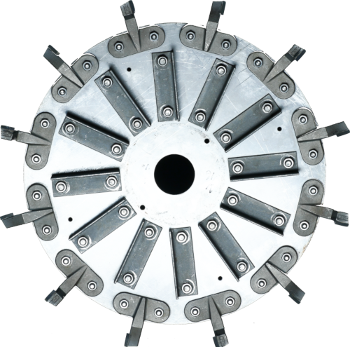What is Toll Milling/Grinding?
Toll milling/grinding is when a company offers milling or grinding of materials as a service for another company who, in return, pays a fee or "toll".
"Milling" is essentially grinding and is used to reduce the size of a material, powder, particles, etc.
Some other similar terms are "Contract Milling/Grinding" and "Toll Processing".
"Contract Milling/Grinding" is essentially the same as toll milling/grinding. The term "contract" in "contract milling" or "contract grinding" refers to the the fact that the service arrangement between the two businesses includes contractual obligations and requirements.
"Toll Processing" is a superset of toll milling/grinding. Toll Processing encompasses all other toll processing services in addition to milling/grinding.
A high-level view of the process looks like this:
- A company reaches out to a toll miller/grinder to discuss the project and timelines
- The company ships material to the toll miller/grinder's facility (usually freight) at an agreed upon timeframe
- The toll miller/grinder processes the material according to the agreed upon specifications
- The finished/processed product is shipped back to the company's (or 3rd party's) warehouse for storage or further processing
Almost any material that you can imagine can be milled/ground to a finer size. Milling is common for dry materials such as rocks, plastics, or food ingredients like grain or flour.
Food materials benefit from milling by changing the look and feel of a product, changing the mouthfeel, improving digestibility, improving functionality, and more.
For example, imagine a drink needing a form of powder to disperse adequately but it has a gritty mouth-feel which is not desired. Ultra-fine grinding of the powder may be necessary to achieve a smoother mouth-feel.
Several factors should be taken into consideration to decide whether your company should use toll milling/grinding services. Some of the most common reasons are:
- Increased speed to market
- Experimenting with new product lines
- Avoiding the risk of capital investment
- Lack of in-house processing
- Space constraints
- Lack of proper equipment (ultra-fine milling/grinding)
- Low volume which prohibits justification of capital expense (equipment)
- Equipment is down for maintenance or repairs
- High demand/extra capacity
Looking for a food-grade toll milling/grinding service?
Our company offers toll milling/grinding for dry food materials. Learn more about what milling/grinding services we offer.
